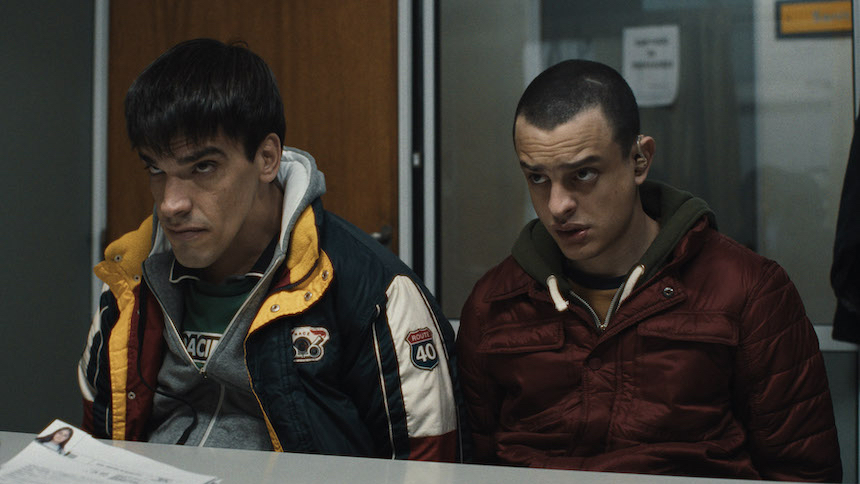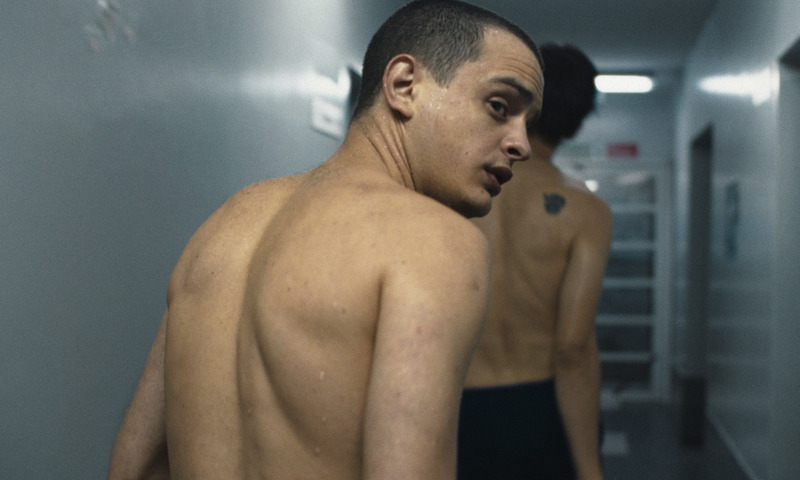Cannes 2024 Review: SIMON OF THE MOUNTAIN Explores Nuances of Belonging, While Navigating Identity
Argentinian director Federico Luis explores the complexities of identity and belonging, challenging societal norms through a portrayal of disability, normalcy and adolescence.

In the landscapes of the Argentine Andes, the director Federico Luis sets his intimate and challenging debut feature film, Simón of the Mountain. Through the story of a young man’s exploration of identity and societal expectations, Luis weaves a tale that pushes the boundaries of conventional portrayals of disability, diving into the human condition and shared search for meaning.
Federico Luis, who already has several short films, like La Siesta and Stay Still or I Love You under his belt, has demonstrated an eye for the nuances of human emotion and societal fringes. His works often focus on characters who exist outside the mainstream, capturing their desires, struggles, and the raw essence of their experiences. Luis continues this exploration in his feature-length debut, presenting a film that is as much about the protagonist’s internal journey as it is about the world he navigates.
Simón of the Mountain introduces the eponymous protagonist (Lorenzo Ferro), a 22-year-old who finds solace and a sense of belonging among a group of disabled youngsters. The stark contrast between the majestic yet largely unseen Andes and the intense, close-up focus on Simón’s interactions emphasizes the film’s commitment to character over setting. Luis’ decided to cast actors with disabilities, including Pehuén Pedre and Kiara Supini.
The director is not afraid to push the envelope of disability beyond common tropes, showing the characters trying to game the social system, spending welfare money in an arcade or going slightly over the taboo line of sexuality, such as what Geoffrey Enthoven did in 2011's Hasta la Vista sex trip dramedy (and Richard Wong's remake Come as You Are). However, Luis focuses more on the emotional dimension attached to carnal desires.
Luis’s directorial style is marked by a blend of controlled and spontaneous, almost improvisational, performances. The cinematography, characterized by handheld shots, enhances the film’s intimate feel, drawing the audience into Simón’s world. The use of sound, particularly the innovative use of a hearing aid to manipulate the auditory experience, further internalizes Simón’s perspective.
Simón´s initial deception — pretending to have a disability to fit in — raises ethical questions, challenging perceptions of normalcy and otherness. As Simón integrates into the group, his interactions with characters like Pehuén and Colo (Kiara Supini) reveal layers of his personality and highlight the shared humanity between him and his new friends.
One of the film’s crucial aspects is its exploration of identity and acceptance. Simón’s relationship with his mother (Laura Nevole) and her boyfriend Agustín (Agustín Toscano) is fraught with tension, highlighting themes of familial expectation and societal pressure. Familial dynamics contribute to Simón's alienation, as he is marginalized, despite being employed by Agustín.
Luis keeps the question of Simón’s background open, obscuring whether his behavior stems from the loss of a father figure, the pressures of his domestic situation, or simply arrested development. Simón feels like a misfit in his able-bodied life and chooses to pretend to be disabled, finding solace in the carefree existence with Pehuén and his friends. This choice, while deceptive, underscores his deep-seated need for acceptance and belonging, revealing the complexities of his character and the lengths to which he will go to find his place in the world.
Simón of the Mountain is a coming-of-age film that, rather than depicting the protagonist's transition into adulthood, follows him as he retreats to the safe space of childhood. Simón remains in a state of limbo, either unable or unwilling to accept the responsibilities of adulthood. This is further complicated by his rejection from the institute where his new friends live, due to his lack of an official disability certification. The film poignantly captures this tension, illustrating Simón's struggle to find a place where he truly belongs.
Simón remains a cipher throughout the story, exhibiting childish tantrums at home while enjoying the communal spirit with teenage “outsiders.” The director focuses on a protagonist who attempts to blend with a crowd that institutions, family, and society discourage him from joining.
Simón resists taking control of his own life, continuing to live under his mother’s roof and failing to pull his weight in his day job. This contrast underscores his internal conflict and reluctance to face the expectations placed upon him, highlighting the broader themes of identity and societal pressure woven throughout the film.
In these terms, the film plays out as a reverse coming-of-age story, with Luis focusing more on the emotional rather than psychological portrayal of the leading character, while avoiding overt melodrama. Although the director utilizes subtle hints of what might be going on in Simón’s head, Simón of the Mountain offers a rambunctious peek into the cloistered world of teenagers with disabilities, depicting them as enjoying life just as any teenagers would. This approach allows the film to capture the exuberance and challenges of adolescence without reducing its characters to their disabilities, presenting a more holistic and vibrant picture of their lives.
Simón of the Mountain won the Cannes Critics’ Week Grand Prize.








